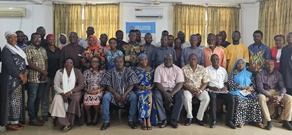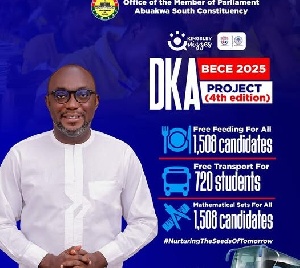Business News of Tuesday, 15 April 2025
Source: www.ghanawebbers.com
CSOs call for inclusive input in 2026–2029 medium-term development plan

Civil Society Organizations (CSOs) believe decentralizing planning will help identify real development needs. This includes gaps in economic development, social services, peace, security, and Water, Sanitation and Hygiene (WASH).
They argue that local assemblies should gather input from key stakeholders. This would improve effective development planning and implementation for national growth.
The call for decentralization was made during a workshop by STAR-Ghana Foundation. The theme was “Enhancing Participatory Governance: Influencing the MTDP for Inclusive and Sustainable Development.”
This event is part of the Actions for Voice, Influence and Inclusive Development (AVID) project. The project aims to promote inclusive governance.
STAR-Ghana Foundation focuses on engaging duty-bearers at all levels. They want to ensure responsiveness to underserved groups' concerns.
As Metropolitan, Municipal, and District Assemblies (MMDAs) begin formulating the 2026–2029 MTDPs, STAR-Ghana highlights target group needs. Their goal is to reflect pressing concerns in the MTDP and create a monitoring framework.
The convening will also occur in Kumasi, Bolgatanga, and Ho from April 8th to 17th. Thirty MMDAs are expected to participate across these zones.
The event presented emerging issues and recommendations as inputs into the MTDP. It also aimed to strengthen collaboration between MMDAs, STAR-Ghana Foundation, and partners.
Mr. Charles Akurugu from Savelugu Assembly praised the initiative. He noted it would address citizens' specific needs reflected in the MTDP.
He emphasized that everyone’s involvement is crucial for proper perspective in planning. However, he pointed out that resource allocation remains a challenge.
Mr. Akurugu called for decentralization of both processes and funding for successful planning.
Raymond Danso from STAR-Ghana explained their role in facilitating engagement with citizen groups. This helps identify issues that can be included in development plans.
He stated that including these issues increases their chances of receiving resources for implementation.
Danso highlighted that the AVID project's core mandate is working with underserved populations. This includes rural women, smallholder farmers, persons with disabilities, and informal sector workers.
He stressed the importance of citizens accessing quality public goods through collaborative agenda-setting with duty-bearers.










